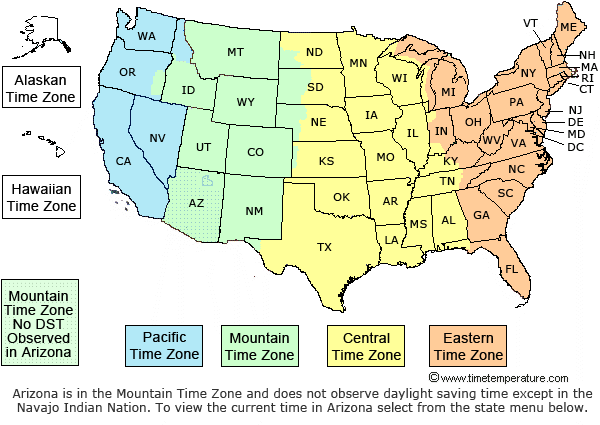|
Mellow Seas posted:BTW the King of England is a huge urban planning geek and has created a city using some of these ideas, on a small scale: https://en.wikipedia.org/wiki/Poundbury I thought this was going to be some YouTube content creator or something but no, literally King Chucky. Lol
|
|
|
|

|
| # ? May 4, 2024 15:47 |
|
Mellow Seas posted:(It would be good, maybe, if somehow social media was used to create local discussion communities. Instead of talking to 10,000 random people out of the 200 million who care about Trump, why not talk to the 10,000 people in your town about your town?)
|
|
|
|
A less bold option would be to build pre-fab neighborhoods next to existing population/employment centers. UConn built a tiny city next to its campus on some empty land (it replaced, roughly speaking, a gas station) with a population of 1300 on 0.04 square miles (not a typo, it's like 1500' x 700'), and it has been very successful. You could put these by large work campuses that are only currently only realistically accessible by car.
|
|
|
|
Oxyclean posted:I want to circle back to this - why would rent control mean places are harder to find? I thought rent control was mostly just rules on how much rent can be charged, and how much it can be raised by over a period, and not really any kind of protection from rentals losing value. (I suppose rent control could impose minimums, but I don't really see why that has to be.) It doesn't inherently lead to that outcome, but in practice it depends a lot on the particular implementation, and most implementations are... not great, in lots of ways, and effectively either limit housing supply by disincentivizing construction of anything that might qualify for it, or drive up prices of paired units in those schemes, or lock people into homes that are falling apart while forcing their kids away from home... At its best I've ever seen implemented, it's a band-aid that fucks over young people while protecting the olds. It's certainly not a solution. Hypothetically it could do better, but good luck with that, its proponents and opponents often seem united in making sure that anything that does get done is as stupid as possible. Actual solutions almost certainly involve a combination of: - Repealing laws and rules that prevent building the housing people want (building sufficient desirable housing is straight up illegal in the vast bulk of the US, and places where it isn't don't have the problems we're looking at) - A public works program to build a wide variety of new, especially entry level, housing directly (and in the process incentivize the construction and development of construction crews skilled in that field, which are in short supply in most areas right now which drives up prices), which will help drive down property prices - Regulations preventing properties from being used as investment vehicles - The local government seizing properties that are left vacant too long and either reselling them or renting them out directly - Other longer term policies and approaches that would require someone who has actual expertise in this area to come up with them, including stuff like founding new cities based on new models Honestly, pick any two of these and you'd probably stop the housing affordability crisis in its tracks, doing all of them would be wonderful though. GlyphGryph fucked around with this message at 16:50 on Mar 26, 2023 |
|
|
|
Mellow Seas posted:A nearby city (and also pretty much every city in CT) has a surplus of poor, young creative people and also a surplus of empty, potentially beautiful (with a little restoration) early 20th century storefronts. There are entire ghost streets of these things. I always thought it would be a great idea to offer studio space a nominal fee to musicians and artists in those kinds of storefronts, which they can use to work at their craft and also interact with the community, so that the space can have a positive impact instead of being a blight. Then paying tenants will start to have an interest in moving in as the streets get more foot traffic. Don't get me wrong this sounds great but if you proposed it to any landlord in the US they would laugh you right out of the building. They would rather have the buildings sit empty then let someone rent them for a nominal fee to do hippy stuff in. Even if it revitalized the neighborhood.
|
|
|
GlyphGryph posted:
Which is why the rentier class prevent housing reform from taking place.
|
|
|
|
|
Hieronymous Alloy posted:Which is why the rentier class prevent housing reform from taking place. The rentier class would oppose literally every suggestion I made there, yes, because they want the "crisis" to get worse.
|
|
|
|
Byzantine posted:Kill all landlords and abolish rent.
|
|
|
|
Oh another thing is that major cities (NYC, SF, Boston, Chicago) who passed restrictive building laws in the 60s to prevent developers from kicking out black and brown people from their houses need to reform their building authorities/planning boards to allow for more development.
|
|
|
|
Who is going to maintain this new housing, will the price to rent be based on the cost to build or will it have to do at all with market rates? Will it just be deeded over to private landlords in a classic American "private-public" partnership that's just another scheme to use public funds to enrich private individuals? Preventing property from becoming investment vehicles is an attack on one of the supporting pillars of our entire economy, if you believe such decommodification is necessary you're at the leftmost fringe of the debate whether you know it or not. If you believe there is a market solution to all this, you're just ignoring the fact that how things are right now is the market solution. A lot of people are getting disgustingly rich because of the current state of affairs, and money is how you influence politics in this country, and it's especially easy when you don't have to do any actual work to get your hands on it so you're free all day to loudly claim you're a victim of anti-business government oppression. It's not even a lefty thing - Smith and Ricardo, the least abominable early thinkers on Liberalism, were basically Maoists when it came to rent-seeking, which is of course why so much time and money was spent instead elevating Austrian/Randian Economics which is just having a block of houses declared derelict so you can get the rights to strip the copper from them. All of the incentive and market-based strategies have been tried, indeed have been the only acceptable option to try for decades, and here we are. It's pushed because it won't work but will box out actual solutions. It's not going to work the 1001th time if it didn't work the first 1000. silence_kit posted:We already have a lot of cities in the US with low rent & housing prices where there is an abundance of housing units relative to demand. This is a lot of cities in the Rust Belt. I grew up in one. My sister a couple of years ago purchased a very nice ranch style home in a nice neighborhood in my hometown for $60k. That amount of money is less than what some goons spend on their cars. Real wages fall as housing keeps going up, and speculation and cartels sweep up more and more with government approval and aid for the purposes of creating new high price markets by force. What you're proposing here is a retreating tactic, and thus a doomed one, the same as rent control and market-based tactics. Buffett is already coming for trailer parks and "the poor part of towns" here in the midwest and rust belt, and remote work has accelerated the exploitation outside of even mid-sized cities. Your sister was very fortunate, and is now invested in this problem becoming worse, but there's fewer and fewer of her situations every year.
|
|
|
|
Oxyclean posted:I want to circle back to this - why would rent control mean places are harder to find? I thought rent control was mostly just rules on how much rent can be charged, and how much it can be raised by over a period, and not really any kind of protection from rentals losing value. (I suppose rent control could impose minimums, but I don't really see why that has to be.) Part of the reason prices are so high is because housing demand in these areas tends to be high relative to the housing supply, to the point where occupancy rates are fairly high even despite the ridiculous prices. It's not the only reason prices are so high, but it's still a contributing factor. If you're rich enough to be able to afford the higher prices, then forcing the prices lower means that there's fewer options for you, because the poor people who had been priced out of the market before can afford to rent those places. Building new housing is a large upfront cost that takes a while to turn a profit. Cutting the profit margin on it means that it'll take even longer for new housing to turn a profit, which in turn tends to limit how quickly that developer can build new housing. This is especially an issue in dense, already built-up areas where building significant amounts of new housing is a lot more expensive than just buying up some half-empty suburban sprawl. Mellow Seas posted:18 year-olds move extremely enthusiastically to cities in the middle of nowhere where they don't know anyone. They're called Ames, Charlottesville, Athens, Madison, and so on. There's no reason people in their 20s and 30s wouldn't do the same in the right circumstance. With the right incentives (cheap rear end housing, the chance to live in a well-planned place for once in your stupid American life, relocation stipends) you could draw a lot of remote workers, and since those types of people tend of have deeper pockets they would be able to support a robust local services economy. The thing about inventing cities from nothing is that it's a chicken-and-egg scenario. People aren't going to move to the city unless there's a bunch of jobs already there. But companies are reluctant to open up offices in the middle of nowhere unless there's a bunch of people already there. That's why so many middle-of-nowhere cities are already dying. You pointed to the Youngstown area as a great place to put a new city. But Youngstown's population has halved since the 1970s and is just over a third of what it was in 1930! And it's not because it's poorly-planned or because housing is too expensive, it's because the factories it grew up around all shut down. Cities aren't built, they're grown. Profitable businesses will naturally gather near a valuable trade/transport hub or a cache of economically-important resources, and their appetite for employees will draw people to come find jobs there, which then leads to a nearby town or village naturally expanding until it becomes a city. Youngstown started as a village, and became a city because coal and iron were available there and it had convenient access to both railroads and the Erie Canal. Detroit was a major port on the Detroit River and became a major Great Lakes trade hub, which in turn drew manufacturers. Building an urban core based on the assumption that it'll be able to become the premier destination for wealthy computer touchers and bankers across the country is certainly ambitious, but I severely doubt it's actually workable. The flow of remote workers migrating out of the existing cities isn't nearly large enough, especially when you consider that even in the best case scenario this city isn't going to capture anywhere near 100% of that flow. Remote workers (theoretically) have the entire country to choose from, after all, and no matter how well-planned the city is there's going to be some who'd rather have a huge McMansion or something instead. Though it's kind of a moot point even talking about the details, given that the federal government massively subsidizing the building of entire new cities from scratch (complete with literally paying people to move to these cities) is far more politically unlikely than an incremental approach focusing on existing communities that already have a voter base and political representatives.
|
|
|
|
We have a lot of systemic issues in the US like our broken healthcare system, gun violence, homelessness, and housing costs. And there's often large debates on how to fix these issues, with many different solutions proposed. But for many of these issues all we have to do is look to other peer countries that don't have these problems and look into what they have done to prevent them. Healthcare is the most obvious one. The solution to our healthcare system is to emulate the system they have in place like Japan or most of the EU. I know the obstacles in place to prevent something like that from happening in the US but we can't pretend like there's no solution at all. So my question is has any other country figured out the housing cost problem? Is there any system out there we should be emulating?
|
|
|
|
Seph posted:It's not theory, this actually happens in a number of expensive cities with rent control such as NYC, LA, and SF. Basically you get an underclass of people who can never move from their apartment because the market rate is 2-3x or more than what they're currently paying. Once a rent controlled apartment gets a certain amount below market rate, it effectively gets removed from the housing supply since there is such a strong incentive not to move. I don't think anyone is really contesting it but, it really feels like more needs to be done then "more supply."
|
|
|
|
Oxyclean posted:Is there a difference between "rent control" and limiting rent increases based on inflation (paraphrasing what another post was suggesting) Because if controls on housing cost is applied universally and not just in some cases, wouldn't that remove the incentive to try to push people out? Like some kind of price control feels important to housing policy because the reality is "housing should not be a commodity" but that's much harder to achieve. I suppose you could theoretically impose some kind of "maximum rent" law akin to minimum wage, but the issue is that Rent Control as an existing term is defined entirely as preventing existing renters from being priced out of their existing homes. So you used the wrong word, basically.
|
|
|
|
Housing is expensive because 2/3rds of the country can't contemplate moving somewhere that is both cold and has no easy access to mountains Its that simple
|
|
|
|
Semi-true - because even places where it's cold and not-mountainous are expensive. Wisconsin and Minnisota also has those same problems - especially places like Minniapolis.
|
|
|
|
mastershakeman posted:Housing is expensive because 2/3rds of the country can't contemplate moving somewhere that is both cold and has no easy access to mountains Bing bong, that’s it. (No) Way to distill a complex issue into victim blaming.
|
|
|
|
Clarste posted:I suppose you could theoretically impose some kind of "maximum rent" law akin to minimum wage, but the issue is that Rent Control as an existing term is defined entirely as preventing existing renters from being priced out of their existing homes. So you used the wrong word, basically. Is rent control that rent cannot go up at all? Perhaps I've completely misunderstood what it was because where I live in Canada, rent increases are limited on some % unless the landlord applies for an above board increase (in which they need to prove that it's a needed increase) - from what I understand, there's still very much a factor of them being able to increase rents if I were to move out, and my current rent seems more affordable then the places I've looked at. I'm under the impression that this is very much akin to rent control. To sort of repeat my point, more supply might help, but that's been happening - they've been plopping down more suburbs out on the other side of the city. Hell, there's a big apartment building going up not far from me. Maybe there still just needs to be even more, but it feels like some kind of rent control/rental cost control is definitely an important thing to help mitigate the fact that supply cannot be added in an instant.
|
|
|
|
Oxyclean posted:To sort of repeat my point, more supply might help, but that's been happening - they've been plopping down more suburbs out on the other side of the city. Hell, there's a big apartment building going up not far from me. Maybe there still just needs to be even more, but it feels like some kind of rent control/rental cost control is definitely an important thing to help mitigate the fact that supply cannot be added in an instant. The existence of new developments does not mean the construction of sufficient housing supply.
|
|
|
|
Oxyclean posted:Fair, but I would still imagine people not getting priced out of their existing homes is good too? I believe that generally, the cities with the highest rents are so far behind in supply that any policy that doesn't focus on highly increased supply is doomed to failure and./or making things worse for a non-insignificant population. The fundamental question under all the discussion is "why should you get to live wherever you want?" Pricing people out of their homes isn't great, but what makes then more deserving of living in a specific location than anyone else other than FYGM?
|
|
|
|
Zachack posted:I believe that generally, the cities with the highest rents are so far behind in supply that any policy that doesn't focus on highly increased supply is doomed to failure and./or making things worse for a non-insignificant population. The fundamental question under all the discussion is "why should you get to live wherever you want?" Pricing people out of their homes isn't great, but what makes then more deserving of living in a specific location than anyone else other than FYGM? What makes speculators more deserving of a profit for no work but ownership than someone who just wants to live closer to where they work, other than FYGM? The notion that there are two systems that determine housing prices, one urban and one rural, and only one works to cartel up and drive prices ever upward by any means necessary is false. One leads the other, but both follow the same arc. You either deal with it as it is and solve it, or treat symptoms that ultimately makes the problem worse and remain hung up on the belief that what people who must rely on earned income want or do has anything to do with it.
|
|
|
|
They are attempting to create more dense housing in my area, with me passing three new apartment buildings replacing trackmalls on the way to the grocery store. It's still not enough. Zachack posted:I believe that generally, the cities with the highest rents are so far behind in supply that any policy that doesn't focus on highly increased supply is doomed to failure and./or making things worse for a non-insignificant population. The fundamental question under all the discussion is "why should you get to live wherever you want?" Pricing people out of their homes isn't great, but what makes then more deserving of living in a specific location than anyone else other than FYGM? Because being literally stuck somewhere and unable to leave is terrible already, and adding more issues to why you can't leave your current living situation is worse. Twincityhacker fucked around with this message at 19:04 on Mar 26, 2023 |
|
|
|
Zachack posted:I believe that generally, the cities with the highest rents are so far behind in supply that any policy that doesn't focus on highly increased supply is doomed to failure and./or making things worse for a non-insignificant population. The fundamental question under all the discussion is "why should you get to live wherever you want?" Pricing people out of their homes isn't great, but what makes then more deserving of living in a specific location than anyone else other than FYGM? I don't think "i'm already here" is a terribly unreasonable position in the case of housing in it's current state, rather then housing just kind of becoming unaffordable for just about everyone. Like, I don't disagree that more supply needs to be created, but if that just becomes a situation where affordable rents are all cheaply built homes in the middle of nowhere that offer little work opportunity or are far from services that it basically has hidden costs to live there in the form of "you need to own a car and drive a whole bunch to get anything" that doesn't really feel like a great solution. Supply isn't going to do a ton if it's not desirable supply - and I've mostly just been trying to repeat my fear of a supply creation strategy that does not take this into mind. And regardless of supply, we do need policy that recognizes that right to live somewhere is more important then the right to make maximum profit of owning housing.
|
|
|
|
Looks like Chicago is replacing a very bad mayor with Vallas. Is he any good? He is getting all the endorsements from the people who Matter. He is also going to win.
Nonsense fucked around with this message at 19:11 on Mar 26, 2023 |
|
|
|
BiggerBoat posted:Related to property discussion: why are there so many companies building new when there are tons of available vacant stores ? Restaurants seem to be the exception; I guess because of specialized infrastructure and poo poo for all the kitchen stuff. I think there are two main reasons for that: 1. A new building is sexy and attractive. All clean and new, it has a certain appeal that you just don't get with repaired and refurbished. 2. Sometimes, it's more cost effective to build new than to update. When you're updating and repairing an existing spot, you've gotta go through to gut out the old bad stuff to replace with the new good stuff, and getting around old construction is a motherfucker sometimes. It's easier and more convenient to just start fresh and have the good stuff in in the first place. Plus if you're smart, you can try to build the new in a more future proof way.
|
|
|
|
Oxyclean posted:Fair, but I would still imagine people not getting priced out of their existing homes is good too? Rent control generally just means you can't raise people's rents above some pre-determined amount. So you might be limited to only 1% or 2% increases, or based on inflation or whatever, rather than whatever the landlord describes. So what you have sounds like some kind of rent control. It would've been nice for my place in Vegas, which went from $1,250 when I moved in in 2016 to $1,900 last year. They "very graciously" didn't increase it again this year, instead opting to tack on an extra $100 in "fees".
|
|
|
|
Oxyclean posted:I don't think "i'm already here" is a terribly unreasonable position in the case of housing in it's current state, rather then housing just kind of becoming unaffordable for just about everyone. Building things where people don't want to be is not what the "more supply" argument is for, as there is already quite a lot of supply in those areas. The problem with solutions that don't massively increase desirable supply is that the outcome is a lot of people don't get to live where they want, and you likely wind up swapping one exploitative system (profit generating rent) into a different, probably less harmful but still likely bad system.
|
|
|
|
Nonsense posted:Looks like Chicago is replacing a very bad mayor with Vallas. Is he any good? He is getting all the endorsements from the people who Matter. He is also going to win. Vallas is a garbage human being and thinly-disguised Republican whose claim to fame is being head of the Dept of Ed under Obama where he loved him some voucher programs. Also quote:American Federation for Children (AFC), founded and funded by Betsy DeVos to promote anti-public school legislation and policies, created an Illinois-based PAC in March 2022, Illinois Federation for Children, which spent more than $700K on Illinois elections in 2022. The chair of the PAC, Nate Hoffman, served as a lobbyist for AFC in Springfield from February 2022 through January 2023, to lobby for the extension and expansion of Illinois’ K-12 school voucher program. He previously lobbied for Empower Illinois (See the entry on FAIR above for more about Empower.) Chicago Reader posted:In his remarks, Vallas discussed his experience and spoke about school choice, which he said he has supported since 1995, and which he called “the civil rights issue for this generation.” After this group sicced a Proud Boy who was at Jan 6 on a bakery hosting a Drag Night in McHenry County the Reader reached out to Vallas for comment. quote:In 2019, during his first run for mayor, Vallas described himself as a “strong advocate for LGBTQ+ issues” in a questionnaire provided by the American Civil Liberties Union. That same year, he committed to advocating for an LGBTQ-inclusive education curriculum in CPS in an interview with the Windy City Times. Oracle fucked around with this message at 19:41 on Mar 26, 2023 |
|
|
|
Re: All the "Just build new small, mostly walkable communities out in the boonies" chat: Honestly I would be all for moving to such a place but it would require at the very least de-privatizing of the internet and making broadband a public right much like electricity. It would make remote work so much more attractive as well. Which is one of the many issues with it.
|
|
|
|
Small walkable communities sound great until you want a pizza at 11 pm. Or an ER within a half hour any time. Plus, yeah, broadband. People hate living in the boonies because they're boring unless all you want to do with your free time is church.
|
|
|
|
|
Oracle posted:Vallas is a garbage human being and thinly-disguised Republican whose claim to fame is being head of the Dept of Ed under Obama where he loved him some voucher programs. Also Yea Vallas sucks poo poo, and I’m not convinced he’s going to win quite yet. Johnson has really closed the gap in the last couple of weeks. Even saw an ad for Johnson while playing Wordle this morning. I think it’s going to be super tight.
|
|
|
|
One thing I’d like to throw in here is the use of mixed zoning policies. There’s no reason why the first or second floors of large apartment buildings can’t be grocery stores, mom and pop restaurants, day cares or health clinics. I know that’s only semi-related to the housing issue itself but if we’re going to densify properly we need to start building that in.
|
|
|
|
Oracle posted:Vallas is a garbage human being and thinly-disguised Republican whose claim to fame is being head of the Dept of Ed under Obama where he loved him some voucher programs. Oracle is hilariously confusing Vallas with Arne Duncan, the guy who ran CPS after Vallas. As a coincidence, on Friday I saw an opera where Arne Duncan was one of the protagonists. Anyway, Vallas was the CEO of Chicago Public Schools before Duncan, they both had similar policies as charter-oriented reformers, but Duncan moved on up to DoEd while Vallas cycled around to other cities like Philadelphia and New Orleans. The rest of Oracle's post actually does describe Vallas, a charter-school loving blue dog democrat who represents the absolute farthest right-wing politics that could win citywide office in Chicago.
|
|
|
|
Planned communities work fine, I just don't think we're capable of it anymore beyond subsidizing company towns. Yeah you have to factor a lot of stuff in, but it can be factored in, you just have to be able to say "there needs to be a hospital here" and then construction on a hospital starts, and you can't rely on there already being a bunch of broke desperate people to exploit or existing infrastructure to cannibalize or privatize. In America that would probably mean the military is in charge of it all but even then it's a dice roll. If a brand new city popped up that had the amenities of an existing small to mid-sized town but also rent was only $200 a month or lower and homes were a 99-year lease at only the total cost to build it would fill up instantly.
|
|
|
|
Someone's got to be in the two time zones that comfortable white liberals with computer jobs don't want to settle in to farm your food and get poo poo between the coasts.
|
|
|
|
Star Man posted:Someone's got to be in the two time zones that comfortable white liberals with computer jobs don't want to settle in to farm your food and get poo poo between the coasts. There are major "comfortable white liberals with computer jobs" cities in all four of the continental American time zones.  Of these four, please clarify which two are anathema to "comfortable white liberals with computer jobs."
|
|
|
|
Star Man posted:Someone's got to be in the two time zones that comfortable white liberals with computer jobs don't want to settle in to farm your food and get poo poo between the coasts. Americans don't farm their own food. 73% of the industry are immigrants. Also California is one of the largest agriculture producers.
|
|
|
|
GlyphGryph posted:The existence of new developments does not mean the construction of sufficient housing supply. Yep. This is equivalent to saying "it's snowing outside, how can global warming be real?" To put some context around how dire the housing shortage is in some cities, Los Angeles has an estimated shortage of 500,000 housing units. People were talking about New Orleans upthread, which only has a population of ~400k. That means Los Angeles needs to build more housing than exists in the entirety of New Orleans just to break even on housing demand. Let alone have the surplus needed to truly bring down prices. Zamujasa posted:Rent control generally just means you can't raise people's rents above some pre-determined amount. So you might be limited to only 1% or 2% increases, or based on inflation or whatever, rather than whatever the landlord describes. So what you have sounds like some kind of rent control. I'd add to this that Rent Control usually brings in additional protections for tenants beyond just capping rent increases. Depending on the location, it could mean things like: landlords can't cancel the lease, only tenants can; there's a longer runway of nonpayment before tenants can be evicted; or entitlement to compensation or relocation benefits if the building gets renovated.
|
|
|
|
Oxyclean posted:I want to circle back to this - why would rent control mean places are harder to find? I thought rent control was mostly just rules on how much rent can be charged, and how much it can be raised by over a period, and not really any kind of protection from rentals losing value. (I suppose rent control could impose minimums, but I don't really see why that has to be.) Yeah exactly. If rent control means that housing is harder to find... than that means right now, with rising rents and exorbitant prices, the solution for ensuring some vacancy is to make sure some people can't afford housing. If the solution to ensure you have room for more people is to price people out than that's an inhumane practice. You need to make it affordable, and make enough for everyone, it's both. One might think 'making enough for everyone' would ensure it was also affordable, but unfortunately that's not how property ownership works, false scarcity is also a real problem in a lot of places. "Some people might be living in their cars but at least there's vacancies to pick from" is a bad and weird compromise.
|
|
|
|

|
| # ? May 4, 2024 15:47 |
|
one thing that i feel has been glossed over with the "just make new cities out where it's cheap": places that do that also usually have public transportation, and not just lovely kinds, either. it's a lot more tolerable to live some distance away from the current core cities when you can actually move and get around without being stuck behind a wheel. but that would require the usa to actually invest in public infrastructure, same as broadband and other utilities
|
|
|






































